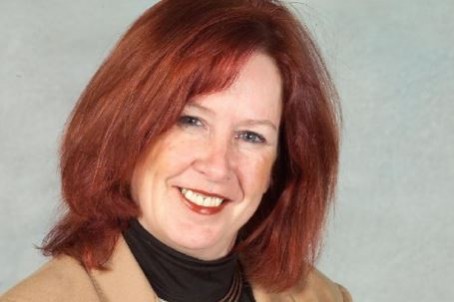The chief of a failed bid to bring a local TV station to Britain’s second city has finally broken her silence on the aborted venture.
Debra Davies has expressed her “sadness” at administrators being called in following the collapse of Birmingham licence holder City TV – with the subsequent failure to get the project off the ground.
The former £120,000-a-year Birmingham City Council spin doctor said the demise of Birmingham Local TV Ltd (BLTV) was down to a number of factors including being unable to come to an agreement with creditors.
But the ex-communications director of the UK’s biggest local authority said she was still confident former Culture Secretary Jeremy Hunt’s vision for “truly local television” was the right one.
She said: “This is so important to towns and cities across the country, especially outside the M25.
“I am saddened that we couldn’t help deliver that vision but it is one that I believe would make a game-changing difference to a lot of communities and local interests.”
“It is with great regret that BLTV, City8, has gone into administration.”
Birmingham-based administrators Duff & Phelps were called in late last week – ending weeks of speculation surrounding the licence holder’s ability to deliver by a November 6 deadline.
BLTV was scheduled to fill the vacant Channel 8 slot on Freeview.
“There were plans being negotiated to rescue the company but creditors rejected early conversations in favour of proceeding with their application,” added Ms Davies, pictured.
“There are a number of factors which led to this but we need to look ahead. And I am confident that administrators will work towards a solution and I have offered them my support as the company director.”
Parties interested in picking up the licence to become the city’s TV champion include the That’s Media group – already awarded licences for Oxford, the Solent, Basingstoke, Reading, Surrey and Salisbury – fronted by former That’s Life presenter and ChildLine founder Esther Rantzen.






 Follow HTFP on Twitter
Follow HTFP on Twitter
Tosh. I would wager a few quid it hasn’t got off the ground because people really do not care.
Report this comment
Seeing as how the company went bust without making a single minute of broadcast time what did all the start-up money get spent on?
Report this comment
Unless of course they were trying to do this on the cheap and didn’t get any cash up front?
Report this comment
The whole concept is ill thought out and fulfils a ‘need’ that doesn’t exist. Let’s be honest, some of the regional BBC and ITV efforts are pretty dire (Points West anybody?) and they are supposedly staffed by professionals.
Report this comment
“This is so important to towns and cities across the country.”
The word she was looking for is “unimportant”
Report this comment
It is the local radio ‘gold rush’ all over again. That didn’t go too well for Newspaper publishers.
In the same way as commercial radio and BBC Radio 1 lost their younger audience to the likes of Spotify; hasn’t the idea of broadcast TV lost their younger audience to catch-up TV, YouTube etc.
The government can’t regulate this with a license and the BBC can’t do what they did to commercial radio i the late 80’s early 90’s.
An increasing number of TV’s are ‘Smart’ so can access Youtube or even specific APPS for local TV channels.
If, and it is a big If, there is a market for local TV then bypass all this broadcast nonsense, keep your costs down and put news bulletins in a place accessible to people online, whatever online is now.
The BBC must be seriously fearing the decrease in the revenue this catchup revolution is causing – good.
Report this comment
Without wishing to repeat his entire argument, I agree wholeheartedly with Edward John Smith. Assuming that the market exists, why would you take on the enormous overheads of over-the-air broadcasting when you can stream your content for a fraction of the cost while offering it on demand?
I’m not against newspapers uploading more multimedia content (interactive photo galleries, podcasts, videos etc) – in fact, I think stuff like that is well worth offering to seduce a younger and more tech-savvy audience. But I can’t see how anyone thinks this local TV scheme is anything other than half-baked.
Report this comment